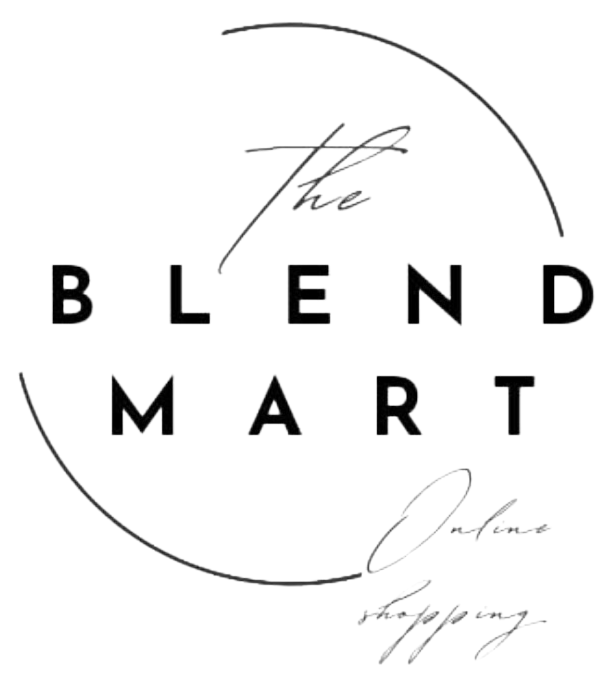Ever thought broccoli could be a health superpower? This common veggie is more than just a side dish. It’s packed with nutrients that boost your health. Raw broccoli is mostly water, with only a little fat and carbs, making it low in calories but high in good stuff.
Broccoli is full of vitamins C and K, and antioxidants. It helps fight cancer, keeps your digestive system healthy, and strengthens bones. Exploring broccoli’s benefits shows it’s a key part of a healthy diet. It offers many vitamins and health perks for anyone looking to improve their well-being.
Key Takeaways
- Broccoli is mostly water and has just 35 calories per cup.
- One cup of raw broccoli gives you 91% of your daily vitamin C.
- Sulforaphane in broccoli may lower cancer risk.
- Lutein and zeaxanthin in broccoli are good for your eyes.
- It’s low in fat and high in fiber.
- Broccoli is great in many dishes.
The Nutritional Powerhouse of Broccoli
Broccoli is known as a nutrient-dense veggie, packed with vitamins and minerals. It’s great for your health. Eating broccoli regularly gives you many benefits, like getting lots of vitamins C and K, and folate. Plus, it’s low in calories, with just 35 in one cup.
Broccoli’s fiber helps you feel full and might lower cholesterol. This can help prevent heart disease. Eating it often can also lower the risk of chronic diseases. It’s a top source of vitamin C, giving you over 100% of your daily needs in one cup. Vitamin K in broccoli is also key, helping your bones and body work well.
Broccoli is full of vitamins and minerals that keep your body running smoothly. Here are some of the key ones:
| Nutrient | Amount per 100g | % Daily Value |
|---|---|---|
| Vitamin C | 89.2 mg | 149% |
| Vitamin K | 101.6 mcg | 127% |
| Folate | 63 mcg | 16% |
| Dietary Fiber | 2.6 g | 10% |
| Calcium | 47 mg | 5% |
| Iron | 0.73 mg | 4% |
Knowing how broccoli can boost your health is important. Its rich nutrients make your meals better and help your overall wellness.
Broccoli Advantages: High in Vitamins
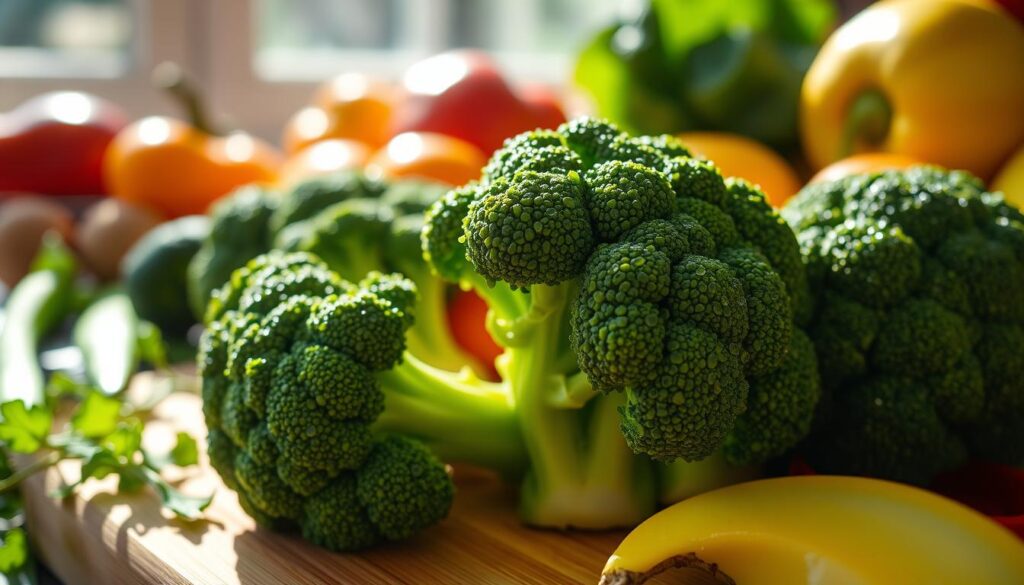
Broccoli is a nutritional powerhouse, packed with vitamins and nutrients good for your health. It’s a top source of vitamin C, even more than oranges. One cup of cooked broccoli gives you 81 milligrams of vitamin C, which is 90% of your daily need.
Broccoli is also rich in vitamin K, with 93 micrograms per cup. This meets 78% of your daily value, helping with bone health and blood clotting. It’s a vibrant green veggie that’s low in calories but high in nutrients.
Broccoli has more to offer than just vitamins. It contains sulforaphane, which may help fight cancer and improve heart health. Cooking broccoli right is key, as boiling can lose up to 90% of its nutrients. Steaming or eating it raw is best for keeping its health benefits.
Looking for a nutritious and versatile food to add to your meals? Broccoli is a great pick. It’s one of the top 10 veggies sold in the U.S. and is packed with health benefits, making it a daily diet staple.
| Nutrient | Per Cup (Raw) | Daily Value (%) |
|---|---|---|
| Vitamin C | 81 mg | 90% |
| Vitamin K | 93 mcg | 78% |
| Folate | 57 mg | 11% |
| Potassium | 288 mg | 6% |
| Magnesium | 19 mg | 5% |
| Calories | 31 | – |
| Fiber | 2 g | 5–7% |
Vitamins in Broccoli: An Overview
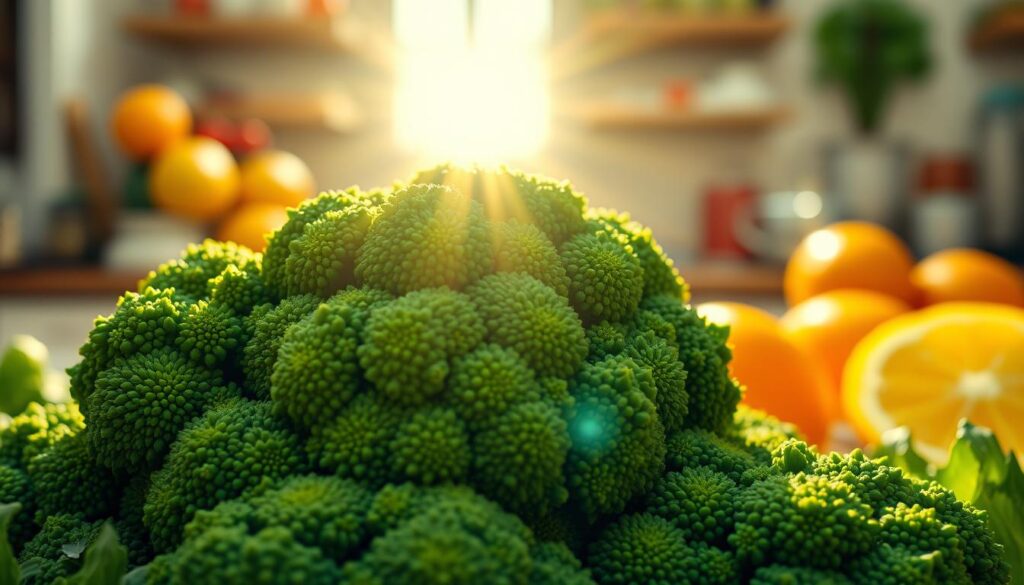
Broccoli is a superfood, full of vitamins that are good for you. These vitamins help keep your immune system strong and your bones healthy. Knowing about these vitamins shows why broccoli is a great addition to your meals.
Vitamin C Content and Benefits
Yes, broccoli is packed with vitamin C. One cup of raw broccoli has over 81mg of it. That’s about 135% of what you need every day. Vitamin C is key for a strong immune system, healthy skin, and fighting off free radicals.
Eating broccoli can really up your vitamin C intake.
Vitamin K: Essential for Bone Health
Broccoli is also rich in vitamin K. A cup of broccoli gives you 116% of your daily vitamin K needs. Vitamin K is important for your bones, helping with blood clotting and keeping bones strong.
Knowing how much vitamin K is in broccoli can help you make better food choices for your bones.
Vitamin A and Eye Health
Broccoli may not have as much vitamin A as some veggies, but it’s good for your eyes. Vitamin A helps with vision and can prevent eye diseases as you age. Adding broccoli to your diet can help keep your eyes healthy.
| Vitamin | Daily Value% per Cup | Key Benefits |
|---|---|---|
| Vitamin C | 135% | Immune support, skin health, antioxidant protection |
| Vitamin K | 116% | Bone health, blood clotting |
| Vitamin A | Estimated 3% | Vision support, eye health |
Macromolecules in Broccoli
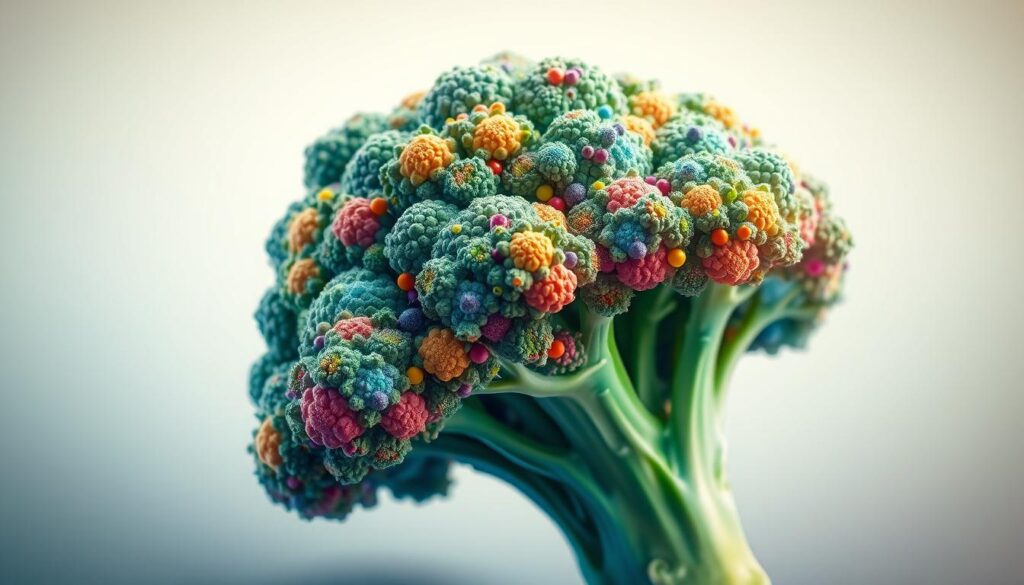
Broccoli is more than just a green veggie; it’s a nutritional powerhouse. One cup of raw, chopped broccoli has about 6 grams of carbs. This includes dietary fiber, which is key for good digestion. Broccoli has about 2.4 grams of fiber per cup, helping your gut and boosting health.
This veggie is full of good stuff. It has about 2.5 grams of protein per cup, which is great for muscles. Plus, its low glycemic index of 10 means it doesn’t raise blood sugar much. This makes broccoli perfect for those watching their sugar intake.
Broccoli’s benefits go beyond its macromolecules. Broccoli juice is packed with vitamins and antioxidants. It keeps the nutrients of broccoli, helping you stay healthy and full of energy. Eating both raw and juiced broccoli gives you all the health perks.
In short, broccoli’s macromolecules are vital for a healthy life. It’s rich in carbs, protein, and fiber, but low in calories and fat. Adding broccoli to your meals is a smart choice for your health.
Health Benefits of Broccoli
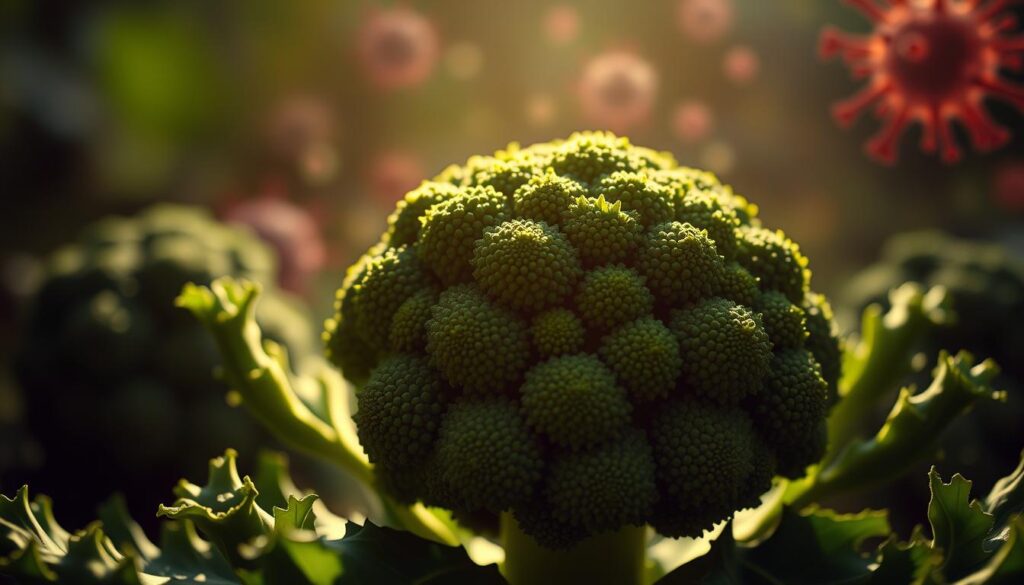
Broccoli is packed with vitamins, minerals, and antioxidants. Eating broccoli can boost your health in many ways. It helps lower cancer risk, supports heart health, and improves digestion.
Reducing Cancer Risk
Research shows broccoli can help reduce cancer risk. It contains sulforaphane, a compound that helps detoxify harmful substances. Eating broccoli regularly may lower the risk of breast, prostate, and lung cancers. Broccoli sprouts are even more powerful in fighting cancer.
Supporting Heart Health
Broccoli is good for your heart too. It lowers cholesterol and fights inflammation with its antioxidants. Eating more veggies, like broccoli, can lower heart disease risk. Broccoli’s fiber also helps blood flow and heart health.
Enhancing Digestive Function
Broccoli is full of fiber, which is great for digestion. It helps keep your bowels regular and may lower colorectal cancer risk. But, some people might feel bloated from eating too much fiber. Listen to how your body reacts.
Broccoli’s Antioxidant Properties
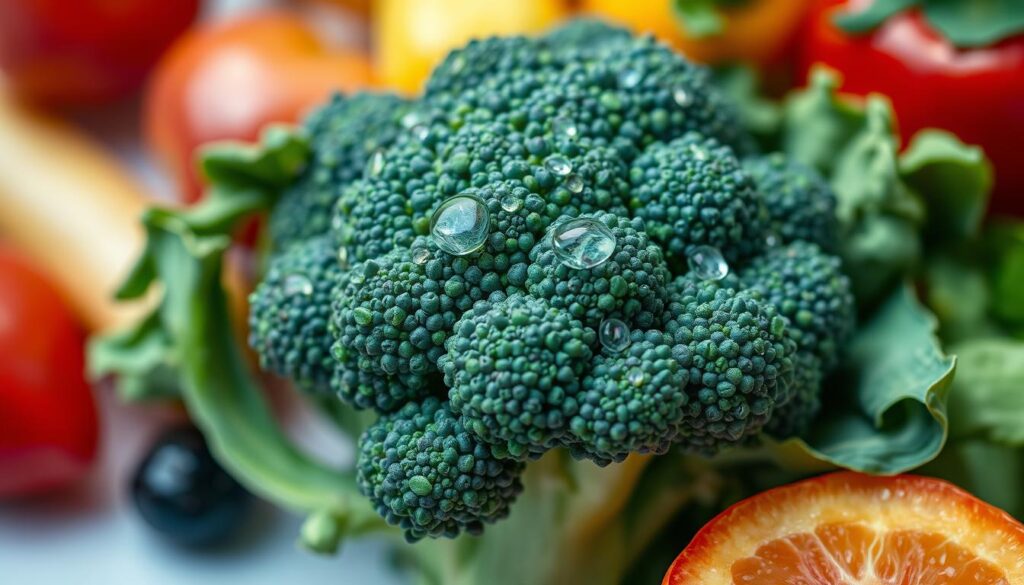
Broccoli is a top choice for antioxidants, boosting your health in many ways. It’s packed with vitamins C and E, and flavonoids like kaempferol and quercetin. These compounds shield your cells from damage, keeping you healthy and strong.
One cup (91 grams) of raw broccoli is a nutritional powerhouse. It offers:
| Nutrient | Amount | % of RDI |
|---|---|---|
| Carbohydrates | 6 grams | – |
| Protein | 2.6 grams | – |
| Fat | 0.3 grams | – |
| Fiber | 2.4 grams | – |
| Vitamin C | – | 135% |
| Vitamin A | – | 11% |
| Vitamin K | – | 116% |
| Vitamin B9 (Folate) | – | 14% |
| Potassium | – | 8% |
| Selenium | – | 3% |
Broccoli helps prevent diseases like cancer. Eating it regularly can lower cancer risks, including breast, prostate, and colorectal cancers. It also fights inflammation and helps manage type 2 diabetes.
Broccoli boosts your immune system and aids digestion. Its fiber promotes regular bowel movements and a healthy gut. It also supports mental health and bone strength, making it a key part of a healthy diet.
How to Prepare Broccoli for Maximum Benefits
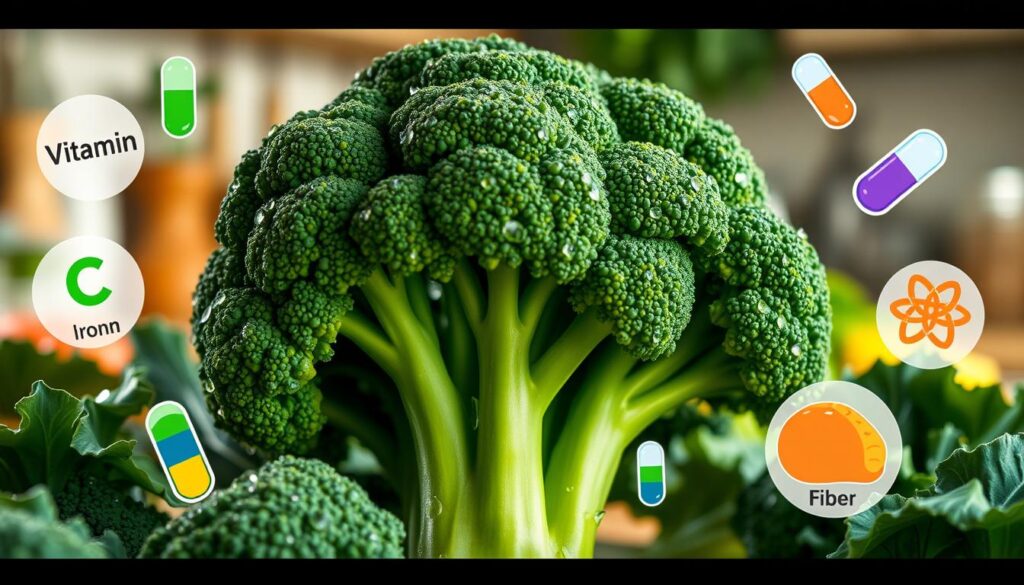
To get the most out of broccoli vitamins and benefits, how you cook it is key. Simple methods can keep nutrients in and boost health benefits. Steaming broccoli for 3 to 4 minutes is great because it saves vitamin C and antioxidants. But, boiling can wash away important nutrients.
- Raw in Salads: Eating broccoli raw keeps all nutrients. Cut it into small florets for salads.
- Steaming: Steaming gently for 3 to 4 minutes keeps it colorful and crisp.
- Sautéing: Sauté quickly in olive oil with garlic. It adds flavor and helps with vitamin absorption.
- Microwaving: Put broccoli in a microwave-safe bowl with water. Cover and microwave on high for 5 to 7 minutes.
- Roasting: Roast at 400 degrees until tender and slightly browned for a tasty flavor.
- Grilling: Grill for 5 to 7 minutes over medium-high heat for a smoky taste.
- Adding to Casseroles: Mix broccoli into baked dishes for a healthy twist.
Adding healthy fats like olive oil or avocado can help your body absorb broccoli’s vitamins better. Eating broccoli several times a week can help lower cholesterol and keep your heart healthy. Try different ways to prepare broccoli and make it a part of your healthy diet!
| Cooking Method | Time (minutes) | Nutrient Retention |
|---|---|---|
| Raw | 0 | 100% |
| Steaming | 3-4 | High |
| Sautéing | 5 | Moderate |
| Microwaving | 5-7 | Moderate |
| Roasting | 10-15 | Good |
| Grilling | 5-7 | Good |
Storage Tips for Fresh Broccoli
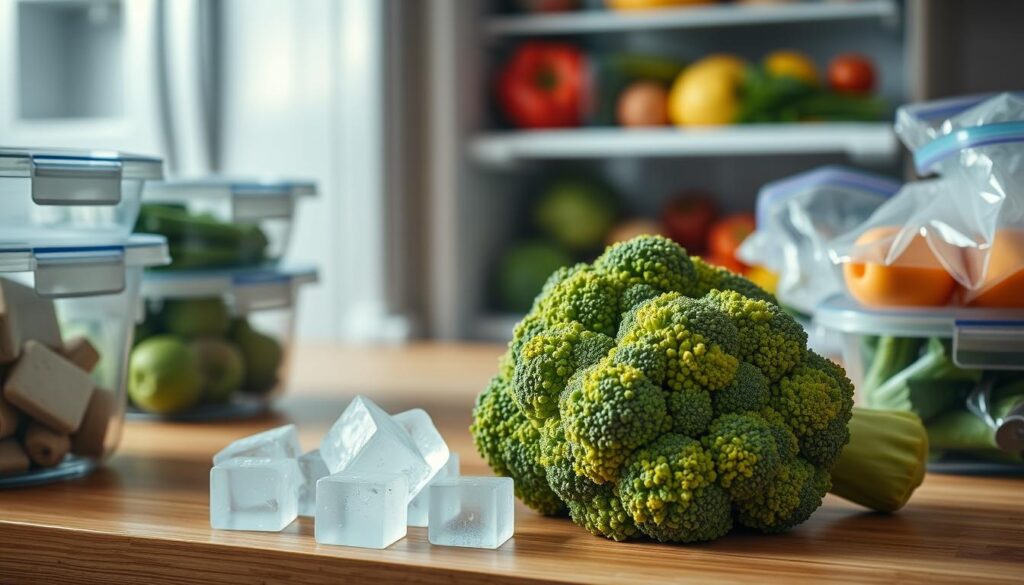
To keep your broccoli fresh and full of nutrients, proper storage is key. Here are some tips to help you enjoy broccoli for longer.
- Refrigeration is key: Store broccoli in a plastic bag or an airtight container in the fridge. This keeps the moisture in, helping it stay fresh.
- Maintain high humidity: Place your broccoli in a cooler part of the fridge. The right humidity level can make it last longer.
- Avoid pre-washing: Don’t rinse your broccoli until you’re about to use it. Too much water can make it spoil faster.
- Keep away from ethylene producers: Store broccoli away from fruits like apples and bananas. They release ethylene gas, which can make broccoli turn yellow and spoil quickly.
Learning how to store broccoli right keeps its taste and nutrients. Broccoli is packed with vitamins K and C. It’s a tasty addition to many meals when stored properly.
Potential Downsides of Broccoli Consumption
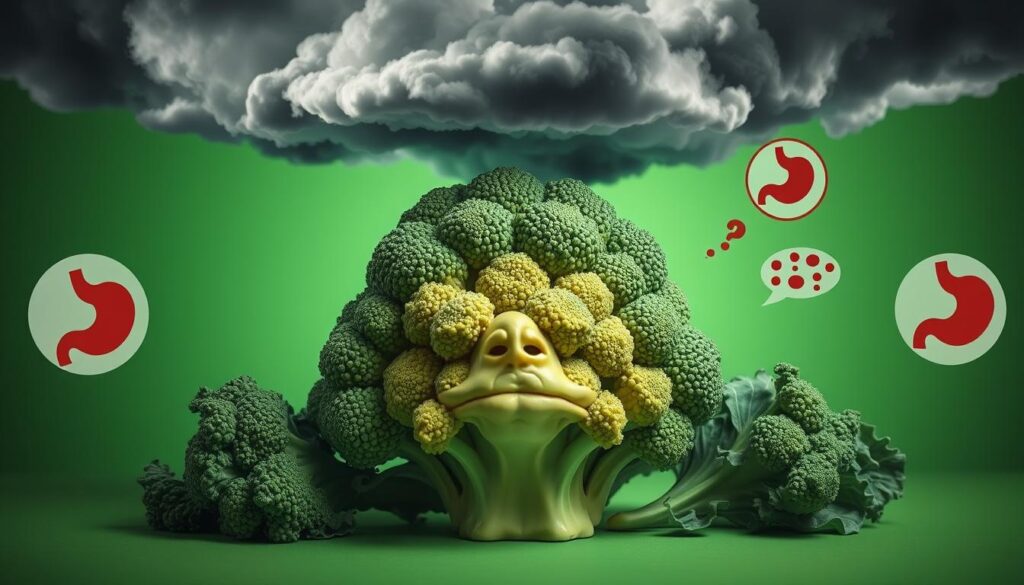
Broccoli is known for its health benefits, but it’s important to know its downsides. It contains goitrogens, which can affect the thyroid, more so in raw broccoli. Cooking broccoli can reduce this risk.
Broccoli also has a lot of vitamin K. This is a concern if you’re on blood thinners. High vitamin K levels can make these drugs less effective.
People with irritable bowel syndrome (IBS) might experience digestive problems from broccoli’s FODMAPs. This can lead to gas or bloating. Also, broccoli is high in phosphorus, which is a concern for those with kidney issues.
Despite these issues, broccoli is a nutritious food, rich in vitamin C. Vitamin C is key for a strong immune system. If you’re worried, try different cooking methods to keep nutrients and avoid side effects.
Conclusion
Broccoli is a superfood full of nutrients. It’s rich in Vitamin C, Vitamin K, and minerals that boost health. Eating broccoli regularly helps your immune system and heart health.
It also lowers cancer risk. Broccoli’s sulforaphane fights chronic diseases, making it great for a healthy diet.
Broccoli is easy to add to many dishes, like salads or stir-fries. This makes it a great choice for a balanced diet. It helps with digestion and weight control.
But, eating too much broccoli can upset some stomachs. Despite this, its health benefits are much greater. Adding broccoli to your meals can make your diet healthier and tastier.
